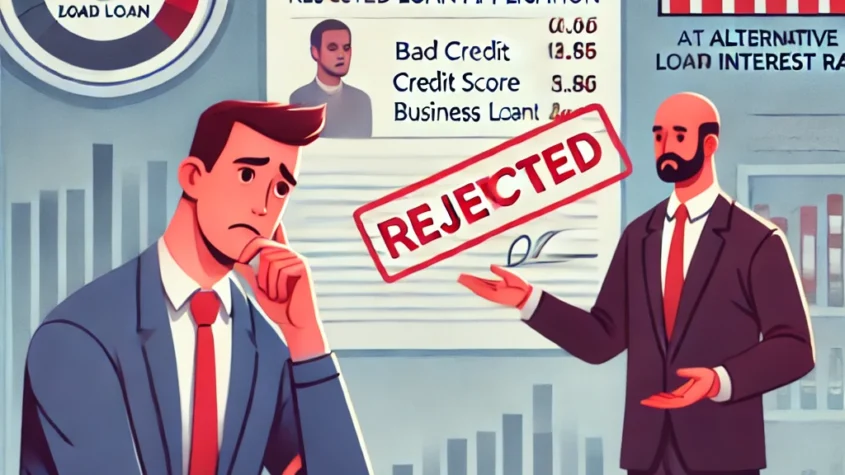
Many individuals face obstacles when applying for a mortgage due to bad credit, but options do exist. Those with less-than-perfect credit can still secure a mortgage by exploring alternative lenders, government programs, and addressing credit score factors. Understanding these possibilities is crucial for potential homeowners looking to break into the market despite financial challenges.
Securing a mortgage with bad credit may seem daunting, yet it is not an insurmountable task. Various lenders specialize in accommodating borrowers with lower credit scores, and some government-backed loans have flexible requirements that can ease the process. By knowing where to look and what to prepare, individuals can improve their chances of homeownership.
Researching and addressing personal financial situations can significantly impact the mortgage process. Efforts taken to improve credit scores, save for a larger down payment, and provide proof of steady income can enhance eligibility. With the right approach, securing a mortgage with bad credit becomes a more attainable goal.
Understanding Mortgages with Bad Credit
Securing a mortgage with bad credit can be challenging but not impossible. Knowing how credit scores affect eligibility and the types of loans available is essential for potential borrowers.
Impact of Credit Scores on Mortgage Eligibility
Credit scores typically range from 300 to 850. A score below 620 is generally considered bad credit. Lenders view this as a higher risk, which can lead to higher interest rates and stricter terms.
Borrowers with low credit scores may face challenges when applying for traditional loans. However, some lenders specialize in working with individuals who have poor credit. They may offer lower thresholds for credit scores but usually apply stricter financial guidelines.
Key factors affecting eligibility include:
- Debt-to-Income Ratio (DTI): Lenders assess this ratio to determine if a borrower can manage additional debt.
- Income Stability: Consistent income from employment can ease concerns about creditworthiness.
- Down Payment Amount: A larger down payment can improve chances of approval.
Types of Loans Available for Bad Credit
Several financing options are available for those with bad credit. Each has unique requirements and terms.
- FHA Loans: Backed by the Federal Housing Administration, these loans accept credit scores as low as 580 with a 3.5% down payment. Borrowers with scores between 500 and 579 may qualify with a 10% down payment.
- VA Loans: For eligible veterans, these loans do not have a minimum credit score requirement. They also allow 100% financing, reducing upfront costs.
- Subprime Mortgages: These are designed for borrowers with poor credit. They come with higher interest rates and less favorable terms but can provide an opportunity for homeownership.
Understanding these loan types and their requirements can help borrowers make informed decisions when seeking a mortgage despite bad credit.
Improving Your Chances of Approval
Individuals with bad credit can enhance their chances of mortgage approval through focused strategies. By addressing credit scores, saving for a down payment, and considering co-signing options, potential borrowers can position themselves more favorably in the eyes of lenders.
Strategies for Enhancing Creditworthiness
Improving credit scores is crucial for mortgage approval. Steps to achieve this include:
- Paying Bills on Time: Consistently meeting payment deadlines builds a positive payment history.
- Reducing Debt: Lowering credit card balances can improve the credit utilization ratio, which is key for lenders.
- Reviewing Credit Reports: Checking for errors can lead to corrections that boost scores. Disputing inaccuracies with credit bureaus can be beneficial.
- Secured Credit Cards: Using these can help rebuild credit, provided payments are made punctually.
Combining these strategies often leads to quicker improvements in creditworthiness.
Importance of a Substantial Down Payment
A larger down payment can significantly enhance mortgage approval chances. Lenders view this as a sign of financial commitment and lower risk. Here are key points regarding down payments:
- Lower Loan Amount: A substantial down payment reduces the loan amount, which mitigates lender risk.
- Potential for Better Rates: Higher down payments can lead to better interest rates and terms.
- Equity from the Start: It provides instant equity in the home, reassuring lenders of the borrower’s investment.
Aim for a down payment of at least 20% to maximize these advantages.
Considerations When Co-Signing a Mortgage
Co-signing can assist individuals with bad credit in obtaining a mortgage. However, there are important considerations:
- Risk to the Co-Signer: The co-signer’s credit score and income are impacted, making them liable for the mortgage.
- Financial Stability: The primary borrower must ensure they can meet payment obligations to protect the co-signer’s credit.
- Relationship Dynamics: Co-signing could affect personal relationships, especially if financial issues arise.
It’s crucial to weigh the pros and cons carefully before proceeding with a co-signer.
British Virgin Islands Company Registration Guide for 2025 Compliance and Benefits
The British Virgin Islands Company Registration process is straightforward, efficient, and…








